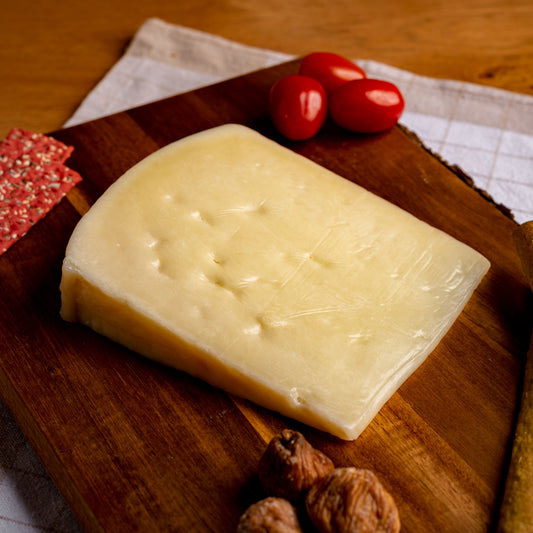Countries with a Mediterranean climate, such as Greece and generally the southern countries of Europe, are characterized by hot summers which make the cheeses go bad faster. In contrast to the countries of Central and Eastern Europe, as well as in the countries of Northern Europe, which have a cold and dry climate, the preservation of hard cheeses is much longer.

When it comes to hard cheese, moisture trapping is less of a concern as these types of cheese are quite durable. Hard cheeses as well as Greek ones do not like too cold. If your kitchen has a cool temperature then you can leave cheese out on the counter. Just remember to cover it with a cloth or towel so that it is not exposed to too much air or bugs. If the piece of fabric becomes wet it’s time to replace it. So the famous Greek Hard Cheeses like the salty Graviera and Kefalotyri or Dry Myzithra , Dry Anthotyros with the brackish, buttery taste, they all best preserve their aromas in a cool room temperature. Same goes for Kefalograviera cheese which is a combination of Kefalotyri & Graviera, Ladotiri from Mytilini with the peppery taste and intense aroma, the smoked cheese Metsovone, the popular Feta and the spicy Arseniko from Naxos.
As a rule, Greek Flavours sends you the cheeses inside a special packaging and in a proven safe period of time so that they arrive fresh without any alteration.
What is the ideal temperature to keep cheese fresh?
The "perfect" temperature varies depending on the geographical location but usually ranges between 7 and 12 degrees Celsius (45 - 55 Fahrenheit). Most home refrigerators are colder than this meaning it is likely for the cheese to dry out if stored inside a fridge. You can easily keep the cheese outside (or inside) the house in a cool place.

Greeks had their ways of storing hard cheeses since Ancient times
The Greeks from antiquity included in their diet dairy products very often. Due to the warm climate of Greece they had to find a solution to keep it fresh for as long as possible especially during summer. They discovered 4 different ways to do so.
- Add salt
- Storage in cool places
- Keep in boiling water with salt solution
- Coating their outer surface with fat or wax
Later, but before the refrigerator was invented, the Greeks found out other methods which are used successfully to all over Greece up to this day.
Grandma's old trick to keep the feta fresh, even for months
The popular way to keep the feta for days is in brine. Place the feta in a spacious container and cover it completely with brine and store it somewhere cold. You can very easily make your own brine, dissolving 70 - 80 gr. coarse sea salt in 1 kg of water.
If you want feta to stay fresh for months you can keep it in a cool place inside a jar covered with olive oil. This tip is ideally recommended for hard feta, but it must be strained well so that it does not have liquids. Also, if you want to give a special taste to your feta, you can add spices or herbs of your choice in the jar with the olive oil where you will place feta.

How they store hard cheeses in Crete?
Olive oil and dairy products of Crete are two products that justifiably make Cretans proud. They know well that Olive oil is an excellent preservative for Olives and cheeses like Graviera, Kefalotyri, Dry Anthotyro and Myzithra. You cut the hard cheese in large pieces and place them in a clean (preferably sterile but cold) glass jar. Then you can add bay leaves, black pepper beans, small red hot peppers or the herbs you like and finally pour the olive oil until the jar is full. In that way the hard cheeses are kept for months fresh. If you forget the cheese in your warehouse and mold starts to grow it will be on the oil not on the cheese. Just wipe it and rinse with lukewarm water, now the cheese is safe to be consumed.
Things to avoid
As we said earlier hard cheeses are quite durable especially in countries with cold temperatures. But it’s good to know what not to do. If you want to wrap the cheese avoid plastic because it will help in the creation of harmful bacteria. Alternatively, use baking parchment paper or wax paper which prevents additional moisture and allows the cheese to breathe. Don’t wrap it too tightly as the cheese will suffocate and is going to smell bad like ammonia. However, if you wrap your cheese too loosely it will dry out and harden. Remember, you should replace the paper every time you unwrap. Finally, if you end up with a moldy cheese or with dried edges you can still scrape or cut off these parts and enjoy the rest of the cheese.



















